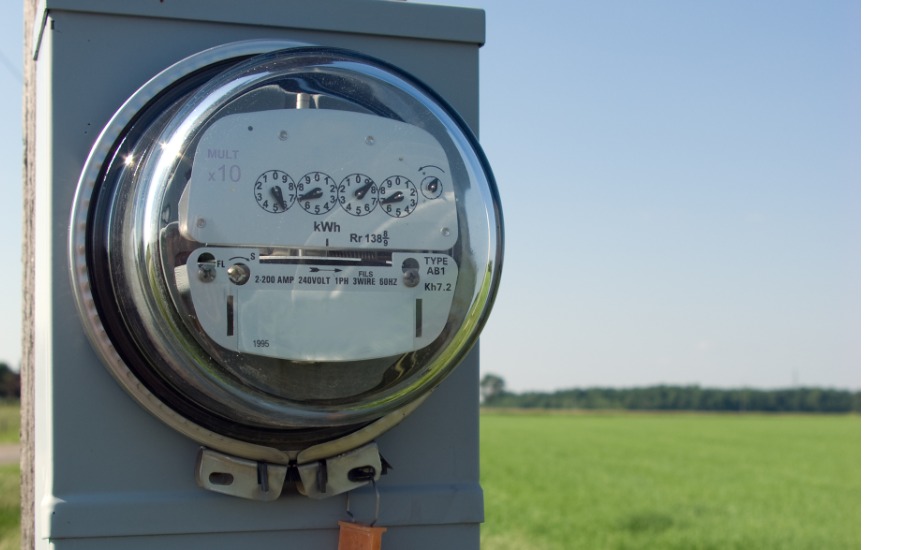
TN farmers fear end of free power, oppose installation of meters
Going against the Centre’s proposal of the Electricity Amendment Bill, which bars states from providing free power to farmers, the Tamil Nadu government has decided to continue their old power supply rules.

Going against the Centre’s proposal for the Electricity Amendment Bill, which bars states from providing free electricity to farmers, the Tamil Nadu government has decided to continue the free power supply to them. However, the state has begun installing digital meters on farmlands.
Fearing that the installation of the meters would be the first step towards the end of free electricity, farmers in the state have strongly opposed the move.
On May 24, officials from the Tamil Nadu Generation and Distribution Corporation Limited (TANGEDCO) visited many farmlands in Cuddalore district and started fixing digital meters.
“They [officials] fixed the meter in my field in March this year, when I got the connection under the tatkal scheme. It has been there for three months. Whenever I asked the officials [about the fixing of the meter], they said it was just to assess the electricity usage,” said Venkatesan, a farmer in Cuddalore.
Venkatesan, who owns four acres of land for cultivating paddy, applied for free electricity connection in 2014. After a six-year wait, he decided to get power supply under tatkal scheme in 2019 by paying ₹4 lakh and within weeks, he got power connection.
Related news: Palaniswami fumes at Centre over ‘unreasonable’ borrowing conditions
“The officials said after a couple of days, they would uninstall the meters. But even after three months, they haven’t removed it,” alleged Venkatesan. He said there was an order which said a farmer who got free electricity under the tatkal scheme had to fix meters.
“We have been asking the state government to withdraw such order. It keeps the farmer in fear continuously. They think, first, the government will assess the consumption and in future, it will start collecting fees for the electricity,” said P Shanmugham, general secretary, Tamil Nadu Farmers Association.
The state has also asked the farmers to pay ₹20,000 as additional deposit for every additional HP to use motors more than 5 HP.
“There are various reasons for the depletion of groundwater. We cannot pinpoint only the farmers. The farmers use 7 HP motors to 15 HP motors, because the groundwater has gone down deeper. Come June, the next cropping season will take place. For that, farmers don’t have sufficient money. At this outset, what is the motive in asking them to pay additional amounts and fixing meters?” said Shanmugham.
Related news: Power subsidies as DBT: Centre puts off proposal for now
After the news broke on a regional channel — Puthiya Thalaimurai, State Electricity Minister Thangamani said that the government had stopped the process of installing meters.
“The government says it has stopped the meter fixing activities. But we are demanding that the order be withdrawn. We are fearing that such activities are a precursor for ending free electricity under the Electricity Amendment Bill, 2020. The Centre is actually blackmailing the state to end free electricity so that it can increase its borrowing limit,” said Shanmugham.
There are 21 lakh farmers benefiting from free electricity in the state and yet five lakh more farmers are on the waiting list for over 15 years.
Earlier, the government had a scheme, in which it aimed to provide 40,000 free electricity connections every year. However, for reasons unknown, the scheme was put on hold and in 2016, the tatkal scheme was introduced.
Related news: Expected much but received little: MSME sector on FM’s announcement
A farmer pays ₹4 lakh for power connection under the tatkal scheme, then spends ₹2 lakh for pump sets, followed by another ₹4 lakh for digging a bore well, which totals to a cost of ₹10 lakh to ₹12 lakh per connection.
“Besides all these, if he is asked to pay additional deposit funds and pays electricity charges every month, how can he do farming?” asked Venkatesan.
Shanmugham said that the farmers who were on the waiting list were using diesel to run their pump sets. “It will increase his production cost. But that doesn’t reflect in the market,” he said.
However, power sector researcher K Vishnu Mohan Rao of Citizen Consumer and Civic Action Group said if meters were fixed, they could assess the electricity consumption in the fields accurately.
“Already the TANGEDCO has fixed around 20,000 meters across the state. In many places, farmers are using free power for other purposes also. Because of that, most of the farmers are not allowing the assistant engineers to assess the consumption. Hence, the meters are lying idle. The engineers give some approximate data of consumption to TANGEDCO,” he said.
According to data by Tamil Nadu Electricity Regulatory Commission, in 2018, the transmission and distribution losses in the state stood at 18 per cent.
“A large amount of losses are brought under agriculture. If we have meters, the losses can be assessed accurately and we can take steps accordingly,” said Rao.
Related news: ‘Are we beggars?’ States fume over Centre’s new loan norms

